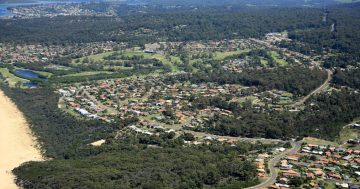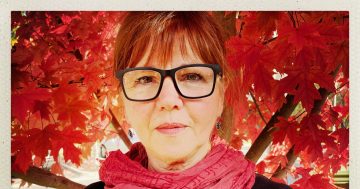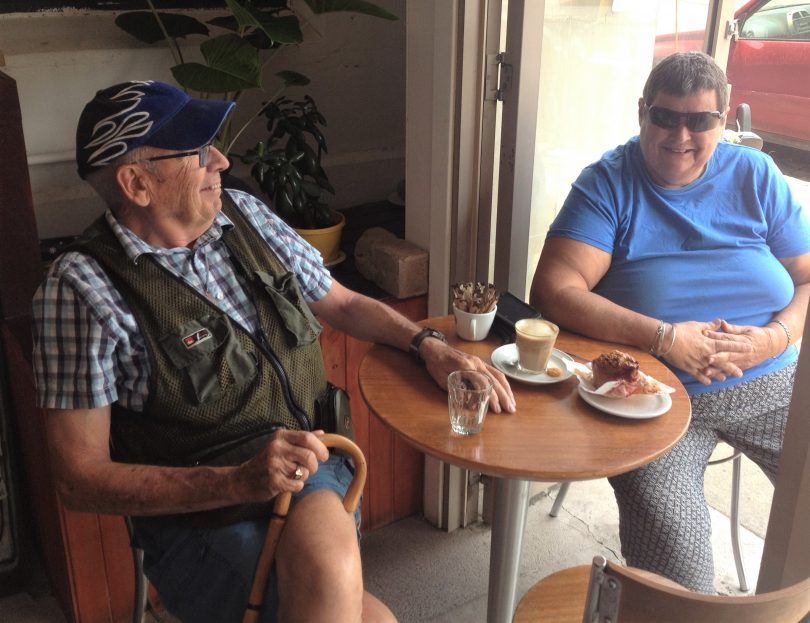
Roger Rixon, [left] of Bega, is a retired bus driver and Delma Rollason, [right], of Numbugga, still drives a school bus. Photo: Elka Wood.
In the Bega Valley, residents have just experienced one such extreme event, with fires in the area consuming acres of bushland, homes, outbuildings and shops, and tragically killing two men from the Cobargo area.
So has living through these fires changed the way people think about climate change? Has it changed our actions, the things we say, or how we plan to vote?
“There’s been a serious lack of backburning,” according to Bega resident Matt Preo. “The government didn’t allow the firies to backburn when they should have. If they had let them, the fires wouldn’t have been as bad.”
Matt also supports opening up national parks for wood salvage, recalling going out to get loads of wood with his dad as a kid.
“Of course, it would have to be managed; I’m talking about deadwood on the ground,” he clarifies.
Delma Rollason lives just out of Bega in the locality of Numbugga and also believes a more active approach to fire management is needed.
“The fire would have burnt my place this time if it hadn’t run into burnt land from the Yankees Gap fire last year,” she explains.
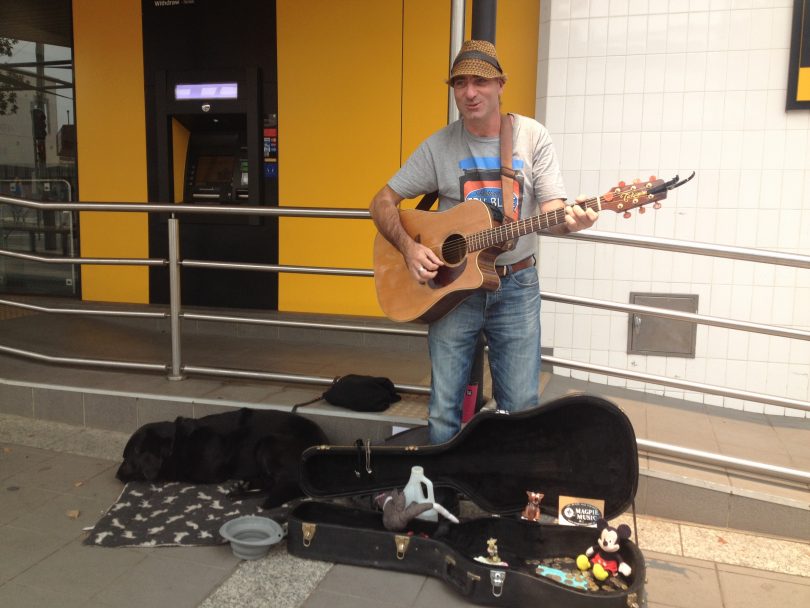
Local musician Matt Preo can often be seen busking on Carp Street in Bega. Photo: Elka Wood.
Delma remembers Mumbulla Mountain, which is currently on fire, being burnt every two or three years when she was a kid.
She says that going through these fires will probably change the way she acts in the future but she’s not sure how. She’d like to see changes in government.
“It would be good if there weren’t so many big companies taking over from the government and I think if you put more young people in the government we’d be right. The elders are just doing the same thing they always did and it’s not enough anymore.”
Renee Dove retired to Cobargo in 2001 and lives on 8.5 acres a few kilometres out of the village, which was badly impacted by the Badja Forest fire.
Woken from “a dead sleep” by a call from her daughter who lives down the road in Verona, Renee left her house at 1:00 am on 30 December, just in time to escape the flames and drive to the seaside town of Bermagui.
“We spent two days in Bermagui before being given 10 minutes warning to evacuate to Narooma, then a few days later, we went to Tathra then finally Bega. We didn’t have enough time,” she says, shaking her head.
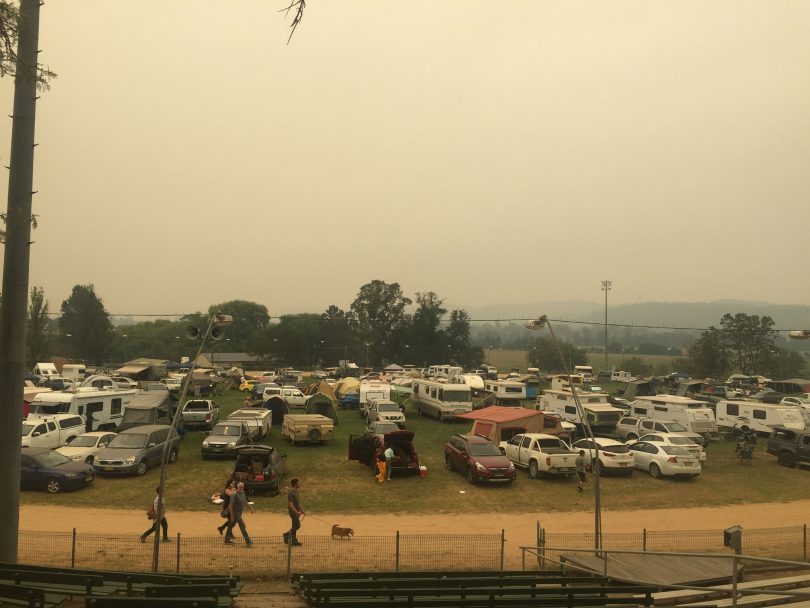
Evacuees at the Bega Showgrounds Thursday, 2 January 2020. Photo: Lisa Herbert.
Cobargo is still without power and likely will be for another month. Renee has now gone home with the help of her sister and brother-in-law, who drove down from Queensland with a generator to help.
“I couldn’t bear staying up to say ‘happy new year’ when I knew Renee was sleeping in her car, and our Prime Minister was enjoying the fireworks, he has no empathy,” her sister says. “My feelings have changed. I think it’s the combination of a lack of vegetation management and climate change that has put us in this situation.”
Brogo resident Brett O’Sullivan has divided his time over the last few weeks between his girlfriend’s house in Tilba and his home, depending on which was most likely to be threatened that day.
“Living through this has confirmed my thoughts about how the climate is changing,” he muses. “It’s almost an honour to live in these times and experience the rawness and reality of it – this is how a lot of the world lives all the time. It reduces the gap between us and the third world. We expect that we are distant from natural disaster when in fact we’re vulnerable and not adapted for it at all.”
Renee needs a decent night’s sleep before she can think about whether living through the Cobargo fires will change her actions or how she votes in the future but Matt is pretty clear: “Scott Morrison has dropped the ball. I’ll never vote Liberal again, I’ll take my vote elsewhere,” he says. “Money needs to go to the firies and to help the animals and he’s not doing it.”







